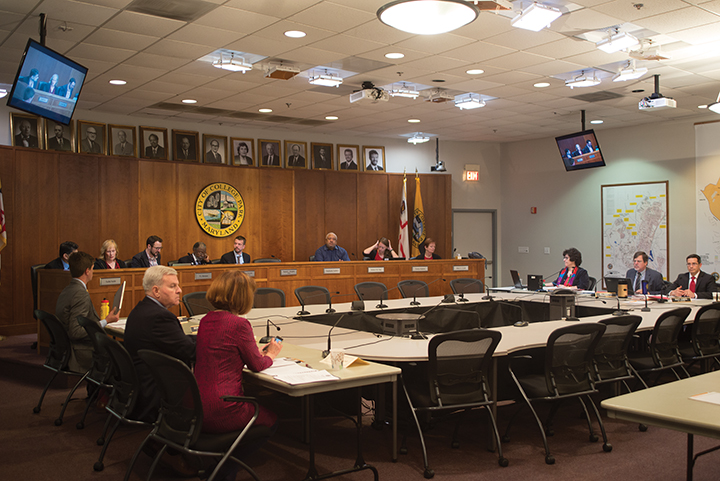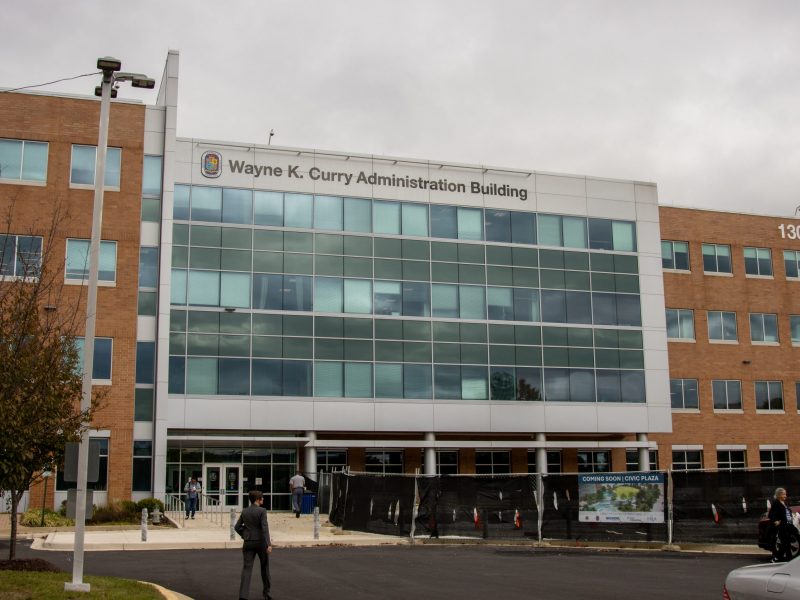Editor’s note: Another story by this freelance reporter attributed a quote to senior Jamie Conway, who was never interviewed for that story. The freelance reporter’s other stories are under review and have been marked by this editor’s note. She will no longer be contributing to The Diamondback. We regret the error.
By Kate Casey
For The Diamondback
The College Park City Council discussed a plan Tuesday to ban the sale and use of Styrofoam products in the city, aligning with Prince George’s County policy.
As part of its Foam Free in PGC movement, Prince George’s County issued a countywide ban on the use or retail of polystyrene, commonly known as Styrofoam, products, effective July 1, 2016. The purpose behind the ban was to reduce the amount of polystyrene waste entering local waterways and landfills.
Most of the businesses affected by this ban are restaurants throughout the county. While the county adopted the ban, the city is not required to enact its policies if the city’s code does not address the topic itself, said Robert Ryan, the city’s public services director.
City enforcement officials are not required to penalize restaurants during inspections unless the city adopts the ban or drafts a similar one on its own, Ryan added.
The food industry commonly uses Styrofoam because of its cheap manufacturing, as well as its ability to keep food insulated. However, many College Park restaurants, such as Aroy Thai, have switched to more sustainable containers in compliance with the countywide ban, said District 1 Councilwoman Christine Nagle.
Aroy Thai switched early on in compliance with the county’s original ban in 2016. Pornnapa Pongpornprot, the restaurant’s owner, said the new containers are more expensive, but the transition has been easier than expected.
“We are more than happy to cooperate with the city to be nicer to the environment,” Pongpornprot said. “It’s better for our customers and the students we have coming in who care about the environment, too.”
Nagle, who also has had more than 25 years of experience in working with environmental protection, said she supports the countywide ban, and she does not foresee the need for city inspectors to take enforcement actions if businesses continue to follow the order of the county.
“Compliance is something that is coming into play [already] so pretty soon hopefully this is something that will happen anyway,” Nagle said during the city council’s Tuesday night meeting.
While Prince George’s County changed the policy on the allowance of Styrofoam and other polystyrene products, the city has not been able to enforce the ban on a local level as College Park has not adopted the code regarding the use of polystyrene in food services, said Bill Gardiner, the assistant city manager. He said the city is making strides to create a plan to leave the smallest possible footprint.
Smoothie King is one of the city’s businesses dealing with these changing policies. Carlos Parada, general manager of Smoothie King on the corner of Knox Road and Route 1, said the transition from polystyrene to plastic cups has been difficult, but important.
“I know Styrofoam is bad for the environment, but it kept our smoothies from melting really fast,” Parada said. “A lot of businesses who haven’t switched over yet might not like it because it won’t keep the food lasting as long.”
Parada added local movements to ban polystyrene nationwide have Smoothie King’s corporate office reconsidering their widespread use of the product.
Alexis Hickson, a senior economics major, said she regularly stopped at Smoothie King for the past three years on her way to class. Hickson said she noticed the cup change last year after the countywide ban on polystyrene products.
“The Styrofoam made it easier to hold [the smoothie] while walking to class,” Hickson said. “I always hear about how bad those products are, and I’m happy the city wants to do something about it, even if it means we have to make sacrifices.”
In October 2015, College Park began implementation of the City Operations Sustainability Plan with a goal to “reduce the environmental impact of City’s operations.” If the city were to adopt an ordinance similar to Prince George’s County’s, it would support that goal, Gardiner said.
“College Park had sent a letter in support of the county bill, when they were discussing it,” said District 1 Councilman Fazlul Kabir. “It is important that we encourage our enforcement officers to support the county and make sure that our businesses do not use Styrofoam.”



